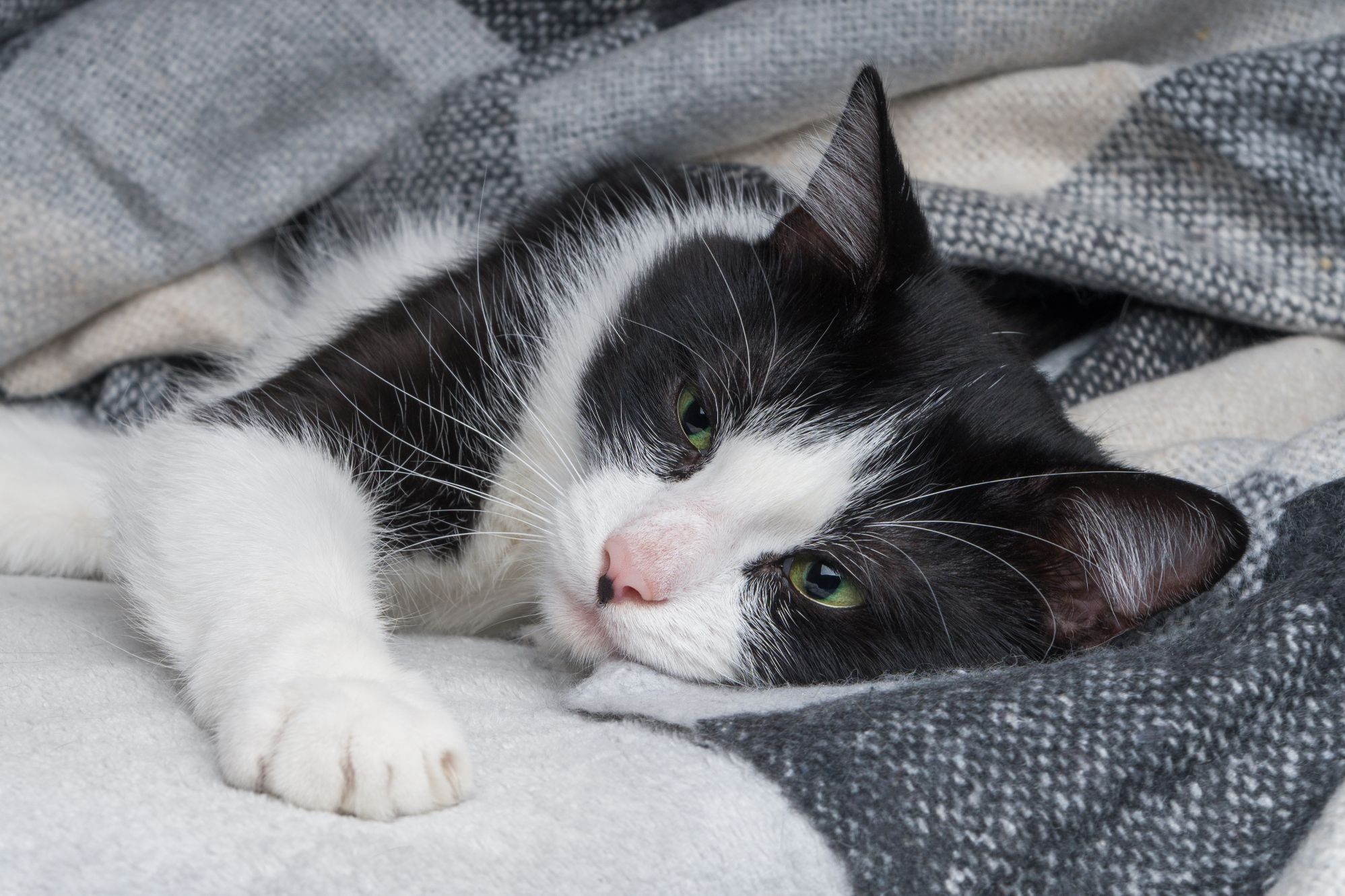Índice do Conteúdo
Cat owners are typically highly attuned to the needs and desires of their pet cats. After all, when they’re looking and feeling their absolute best, it’s obvious to all. When they aren’t in tip-top shape, however, they might try to hide symptoms (and they’re pretty successful at this, at least for a time). When you have the ability to know when your cat is sick, you can intervene immediately. Since time is of the essence in most feline ailments, a quick assessment and action could save a cat’s life.
Self-Preservation is Key
One of the first signs that your cat is sick is a sudden, uncharacteristic shift toward hiding or reclusiveness. This is an inherited trait from their wild ancestors. If they appear weak, they’ll be an easy target for predators. Of course, today’s domesticated felines don’t have to worry so much about that, but they are motivated to elude the notice of their owners.
Sure, they could just be in a bad mood or enduring an “oof day,” but if a sudden dependence on the dark back corner of an undisturbed closet is their new hang out, it’s a good idea to have them examined.
Bad Hair Day
Likewise, any changes in your cat’s appearance should be noted. They are fastidious self-groomers, and enjoy looking and feeling their best. A greasy, unkempt coat should signal that they need help, and fast. You might also see matted fur, a dull-looking appearance to the coat, increased dandruff, or clumps of loose fur.
Take a look at their body language, as well. Any hunched over behaviors signal pain or discomfort. The position of their head (if it’s tilted), ears, or tail can clue you into what’s going on.
The Opposite of Reclusive
Sometimes, cats will talk more when they’re feeling unwell. In this case, a sharp increase of vocalization can trigger more questions about their health. A normally chatty cat may tend to swing toward silence when ill.
Increased meowing or crying out can be linked to gastrointestinal distress, neurological issues, and other issues that need medical intervention.
Kitchen Habits
If your cat becomes suddenly thirsty, and cannot quench their thirst even after repeated visits to the water bowl, they could be sick. Diabetes or thyroid issues can cause excessive thirst, most commonly in older cats. On the other hand, few or no visits to the water bowl can spell trouble if a cat becomes dehydrated. Always monitor how much they eat and drink every day, and what they deposit in their litter box for more clues.
Other problems, like refusal to eat, vomiting, or diarrhea need to be addressed right away. Common issues, including cancer, periodontal disease, liver disease, infection, and GI obstruction require an early diagnosis to achieve an effective treatment.
When Your Cat Is Sick
Cat Care of Vinings is committed to providing compassionate feline care. The more we know about what’s happening inside a cat’s numerous body systems, we can determine the best course of action. If you ever have any doubts about whether or not your cat is sick, it’s better to investigate than wait.
Please call us at (404) 792-0700 with additional questions or concerns. We’re always here for your cat!







